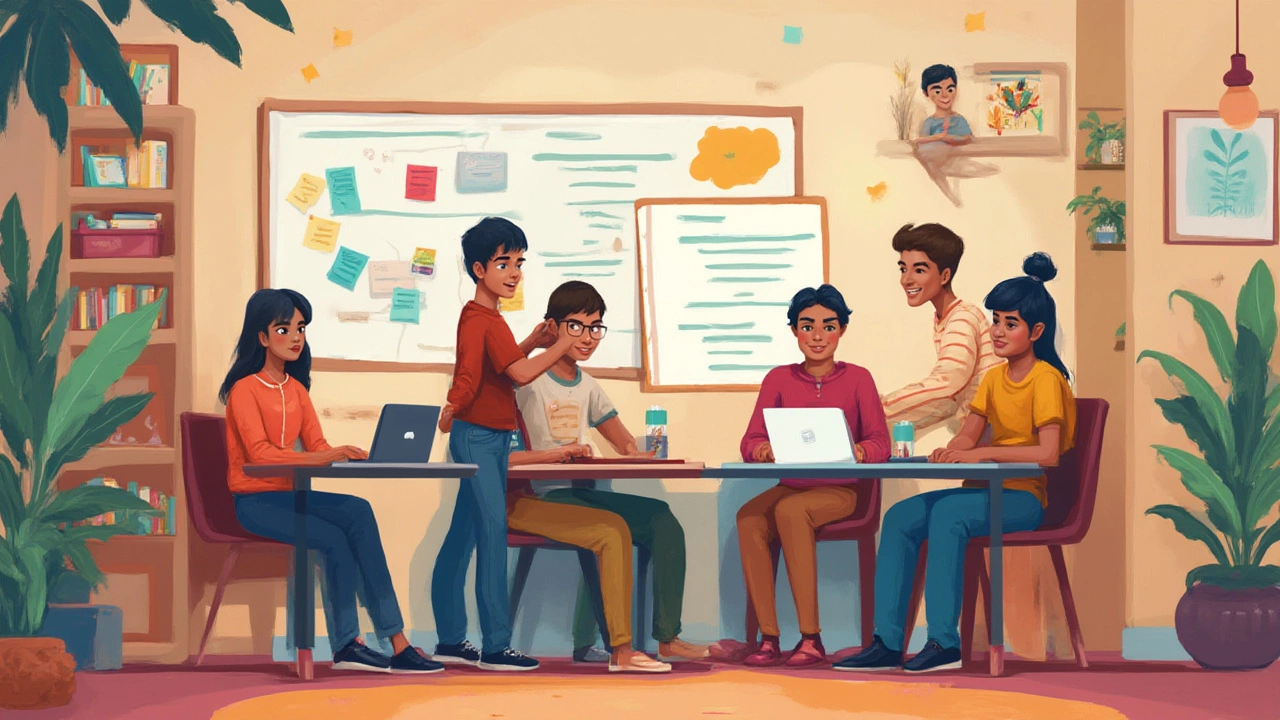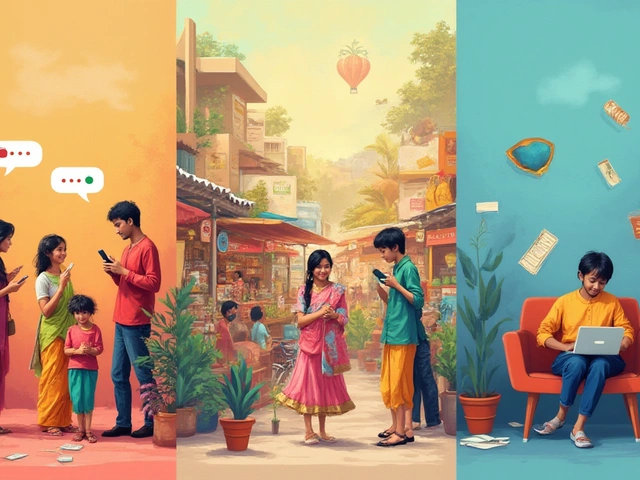Everywhere you look, someone’s telling you to learn coding. “It’s the future!” “Everyone can do it!” Yet, if everybody’s doing it, why do so many people throw their hands up halfway? Countless apps and websites boast hundreds of thousands signing up for beginner classes—but only a tiny fraction finish. The silent graveyard of abandoned code projects is way bigger than you think, and I’d bet Luna’s entire monthly cat snack allowance that you know at least one person with a half-finished Python course haunting their bookmarks. That’s not laziness. The real reasons go deeper. Let’s get into it.
The Real Barriers: Why Most People Quit Coding
The most common picture: a fresh-faced beginner, staring at a blank VS Code window, full of hope and coffee. Fast-forward a few weeks—desperation kicks in, another tutorial screeches to a halt, and Stack Overflow tabs multiply dangerously. It isn’t just about willpower or raw brainpower. The biggest problem? Unrealistic expectations. Way too many folks expect to write cool apps by week two, and when reality smacks, it smacks hard.
There’s some actual research on this: A 2022 study by the University of Helsinki tracked over 30,000 beginners from various online courses. The data? More than 86% gave up within the first two months, and the single biggest reason was “feeling overwhelmed by complexity.” That’s code for “this is way harder than the sales page made it sound.”
Pile on the mental baggage: schools teach us to look out for the “right answer” instead of exploring all answers. When coding, all you get is an error that basically says “wrong, try again,” with no hints. Most people don’t know that it takes a while before things click. Our brains just aren’t used to instant feedback with zero praise.
Then there’s the “tutorial hell” trap. It feels safe to watch endless YouTube walkthroughs or copy code from blogs, but if you never write stuff yourself, you’re only pretending to learn. Social media feeds the cycle with miraculous coder success stories: “She learned in 6 weeks and got hired at Google!” Nobody mentions the sleepless nights, failed attempts, or being stuck on bugs for hours with only your pet for moral support. Oh, and the constant updates to programming languages and libraries make yesterday’s tutorial useless today. That moving target keeps beginners spinning their wheels.
There’s a social piece, too. Coding can be lonely. Unless you have a real community, it’s tough battling bugs in isolation. You don’t have the energy to keep dragging yourself through frustrating problems when there’s nobody to ask for help. Even online communities sometimes get toxic. There’s always that one person who makes you feel like an idiot for not knowing the difference between arrays and lists. News flash: nobody starts off knowing that stuff.
Finally, let’s be honest: most “learn coding” sites design their courses to keep you bouncing from lesson to lesson without truly building anything. Progress feels fake, users drop out, and it’s no wonder the dropout rate for free coding courses still hovers over 90%—Harvard’s own online CS50x course had a 1% completion rate in 2023. Imagine if the gym worked like that. People would quit in droves after the first sore workout.

The Messy Truth About How We Learn Code
Here’s where things get real. Coding isn’t memorizing syntax or collecting badges—it’s all about practice, feedback, and building mental muscle. The popular apps skip this part. Sure, drag-and-drop blocks look cool in ads, but sooner or later you need to solve problems from scratch. Nobody tells you that staring at broken code is a rite of passage, and debugging builds more muscle than any “flashy tip.”
Learning programming is messier than people want to admit. At first, it feels like learning a foreign language with its own strange logic (because, let’s face it, that’s exactly what it is). You might understand the concept of a loop, but making it do what you want without bugs? That comes with repeated failure and lots of small wins. There’s actually a name for the process: “deliberate practice.” Researchers at Carnegie Mellon have shown that people who force themselves to write original code—even just 20 minutes a night—learn 30% faster than those who only follow along with tutorials. Messing up and fixing things actually wires knowledge deeper.
Most people bail because they never escape the hand-holdy tutorial phase. The way out? You’ve got to get your hands dirty. Make your own tiny projects—even if it's just a silly calculator or a to-do list. My own first try was a pet feeding tracker for Luna. It barely worked and had more bugs than her play mouse, but I figured out more from fixing those errors than any lesson video.
There’s a flip side. Beginners often try to copy pro workflows from day one: Git, Docker, complex IDEs—thinking all “real coders” use these things. But starting with heavyweight tools is like learning to drive in a Formula 1 car—intimidating and, honestly, unnecessary. Start simple. Online REPLs or scratchpad editors are fine until you’re ready for more.
Another tip that rarely gets mentioned: schedule regular reflection. Instead of grinding for hours, spend five minutes after each session asking “What frustrated me?” and “What do I still not get?” This simple habit, found in a Stanford study from 2021, helped coders stick with it twice as long. No flashy app needed—just pause and think, maybe jot a note in your phone.
Finally, don’t underestimate the power of spaced repetition (yep, that old trick). Apps like Anki make flashcards for syntax, but you can also write your own “problem diary” and revisit old bug fixes after a week. The key: don’t just stare at solved exercises. Try to re-do them from memory with new twists. The lessons actually sink in when you return to them after a break.

What Actually Works: Practical Tips That Change the Game
If you want to boast about your coding chops one day, start by ditching the common traps. Set your ego aside—it’s perfectly fine to crawl before you run. Here are some hands-on tips anyone can use to get past the hardest parts:
- Pick one language and stick to it for at least three months. The temptation to jump from Python to Java to JavaScript just leads to confusion. Every major company and successful app started simple—with a single main language.
- Pace yourself. Coding is a marathon. Set aside 20–40 minutes a day, not 3-hour grinds on the weekend. Quality beats quantity, especially when your brain is processing new problem patterns. Consistency over intensity works best.
- Stop worrying about memorizing everything. Google and documentation exist for a reason. Nobody remembers every syntax quirk, even top engineers at big tech firms. Focus on problem-solving strategies instead.
- Give yourself “dead simple” starter projects. Automate a boring task in your life, like renaming files or sending yourself a reminder. Even a silly script to tell you if it’s going to rain tomorrow—if it saves you five minutes each week, you’ll care enough to finish it.
- Get real feedback fast. Post your code for reviews—even if it’s embarrassing at first. Properly used, communities (Discord, Reddit, dedicated forums) can help you see what you missed and boost morale. Just tune out the trolls.
- Create a “failure folder.” Every coder faces bugs they can’t solve. Instead of deleting them, save the failures and move on. Revisit them a month later when you’ve improved. You’ll be shocked at your progress and spot your growth clearly.
- Pair up when possible. Find a buddy at your skill level—even if it’s someone online. Pair programming massively accelerates learning, according to a 2023 Google developer survey. You catch each other’s mistakes and pick up tricks by osmosis.
- Accept that frustration is the price of entry. The best coders have been stumped thousands of times. If something feels impossible, that’s your brain re-wiring itself for the better. Take a break, pet your cat, and try again.
- Track your streaks, not your perfection. Use a wall calendar or tracker app. Each day you code—even if just five minutes—mark it off. Momentum matters way more than any “hacker” t-shirt.
- Document your journey. Keep a daily or weekly log. Write about what sucked, what you fixed, and what you plan next. This ritual is way more motivating than binge-watching courses.
Coding isn’t magic, and it isn’t reserved for geniuses. The biggest difference between people who quit and those who learn to learn coding is almost boring: small, stubborn steps, taken day after day. The mistakes will come. So will the breakthroughs—sometimes in the shower, sometimes while feeding your cat. But they only happen if you keep showing up. Forget the hype, drop the guilt, and just keep building. The next person who finishes a project, even a tiny one, could totally be you.






Write a comment: